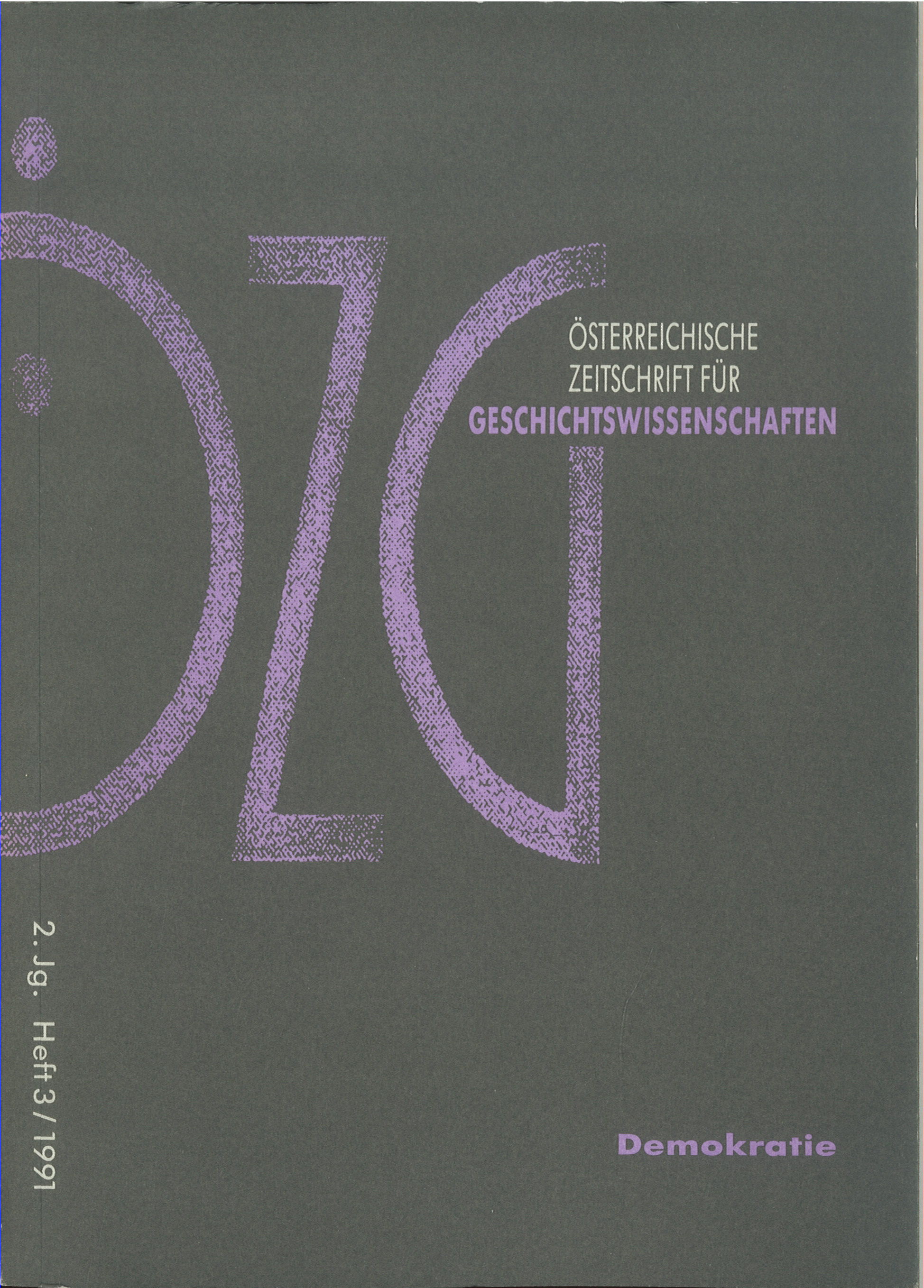Politischer Pluralismus und Nationalismus
Zu Parteienwesen und politischer Kultur in der tschechischen Nation vor dem Ersten Weltkrieg
DOI:
https://doi.org/10.25365/oezg-1991-2-3-5Abstract
The essay analyses the development of various Czech political parties as weil as their programmes within the political structure of the late nineteenth- and early twentieth-century Habsburg Monarchy. The author argues that the emergence of political parties has to be seen in the context of the nationalist struggles within the monarchy, thus determining their structure as well as their ideology to a certain degree. He surveys the most important parties, or more specifically, the political camps developing in the Czech lands, beginning with the National Party, then the opposed groups of Social Democrats and Catholics, and the National-social and Agrarian camps. The number of parties increased especially after 1889 and, as a consequence, the political structure of the Czech nation was already very differentiated in 1907, the year of the first democratic general elections in the monarchy. The author concludes with five theses regarding the political culture in the Czech lands, in which - as in most other regions of the Habsburg state - the common nationalist element played an important role.


